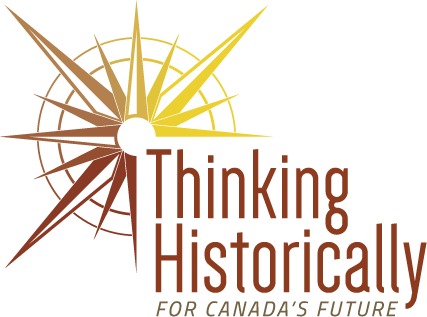Kevin Péloquin,
History teacher
Kevin has taught history to students in Secondary 3 to 5 (grades 10 to 12 ) for 20 years. He worked in Quebec at a public school from 2004 to 2008, and at a private college (Collège Saint-Hilaire) from 2008 to 2024. Located in the Greater Montréal Area, Collège Saint-Hilaire is home to about 630 students in five grades. Despite its modest size, the school stands out for its focus on science and sports, drawing young people and parents in search of a specialized education. The student population, predominantly Caucasian and aged between 15 and 17, comes mainly from middle-class and financially secure families, reflecting a privileged socio-economic background. Although the teaching staff is small, the school strives to provide a quality education that meets the specific aspirations of its students. The students’ academic dispositions, the pedagogical freedom given to teachers and the administrative support provided make for an environment conducive to innovation, particularly in the teaching of history.

Collège Saint-Hilaire
Saint-Hilaire, Québec

Historical Thinking
By immersing himself in the study of the past through the analysis of historical sources, Kevin Péloquin develops methods designed to actively engage students in critical thinking about history.
The students in Kevin’s class, described as eager for knowledge and keen to explore, spur him to design more comprehensive and engaging learning environments. Tailoring his teaching to the specific needs and interests of his students helps to enrich their educational experience and prepare them effectively for their future as critical and engaged citizens. To meet this challenge, Kevin develops courses enriched by a variety of historical sources. He also arranges field trips to historical sites. In this vein, Kevin explains that “to [him], history is a discipline of interpretation. It requires putting documents in place and having students work with sources to get them to see that to do history, you need documents. And those documents are incomplete and biased.”
In the classroom, this means analyzing historical sources and encouraging students to question them, corroborate the information they contain and consider the historical context in which they were produced. Students are also tasked with conducting interviews with direct or indirect witnesses to contemporary events: an approach that shifts the traditional focus from printed sources to personal accounts. In Kevin’s view, this method pushes students to consider each source as a subjective account requiring careful analysis. He stresses the importance of teaching students to recognize the many perspectives that shape the interpretation of an event. This conception, which guides his instructional approach, aims to teach students the skills needed to critically analyze an historical event.

Civic Engagement
Kevin Péloquin embodies a vibrant, critical approach to civic engagement, fostering an enhanced understanding of contemporary social and political issues.
Kevin takes a dynamic and critical approach to civic engagement. This engagement transcends mere conformity to social norms or adherence to preconceived ideas; it relies on the ability to explore, analyze and synthesize information in a nuanced way, based on verifiable facts. Kevin also stresses the importance of justifying and explaining one’s position. “[…] What interests me is getting students to understand not just laws, but why those laws exist and how they could be changed to improve the common good,” he explains.
By tackling the concept of historical relevance, Kevin encourages student-citizens to think more deeply and articulate their opinions clearly. This reflection involves assessing what is important to learn about a phenomenon or event. To him, civic engagement is all about this: it relies on the ability to research, examine and integrate a variety of information in a critical way. He stresses the need to analyze facts in a nuanced way, giving priority to reliable sources and avoiding hasty conclusions. The aim of this approach is to develop young people’s ability to synthesize historical data to arrive at informed opinions, while recognizing the limits and nuances of each historical argument.
Co-created by Kevin Péloquin and René Salem
